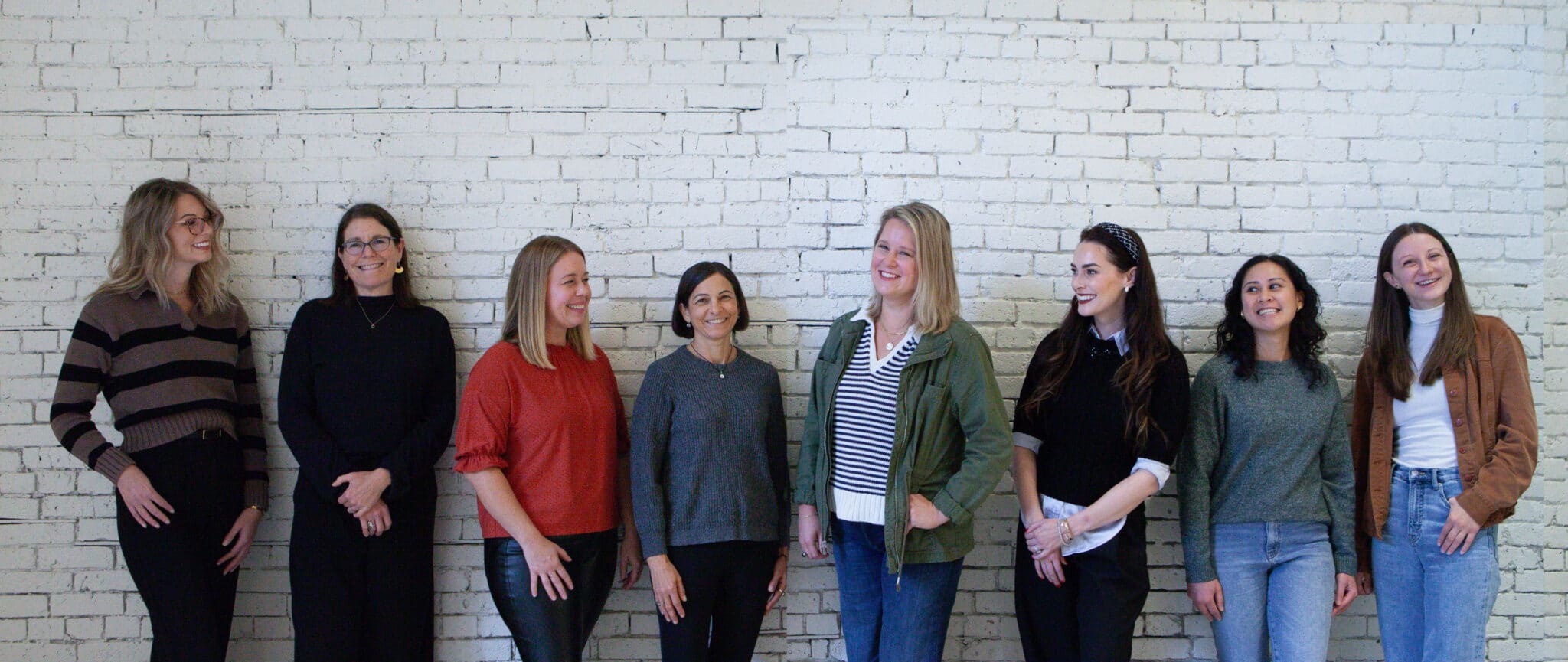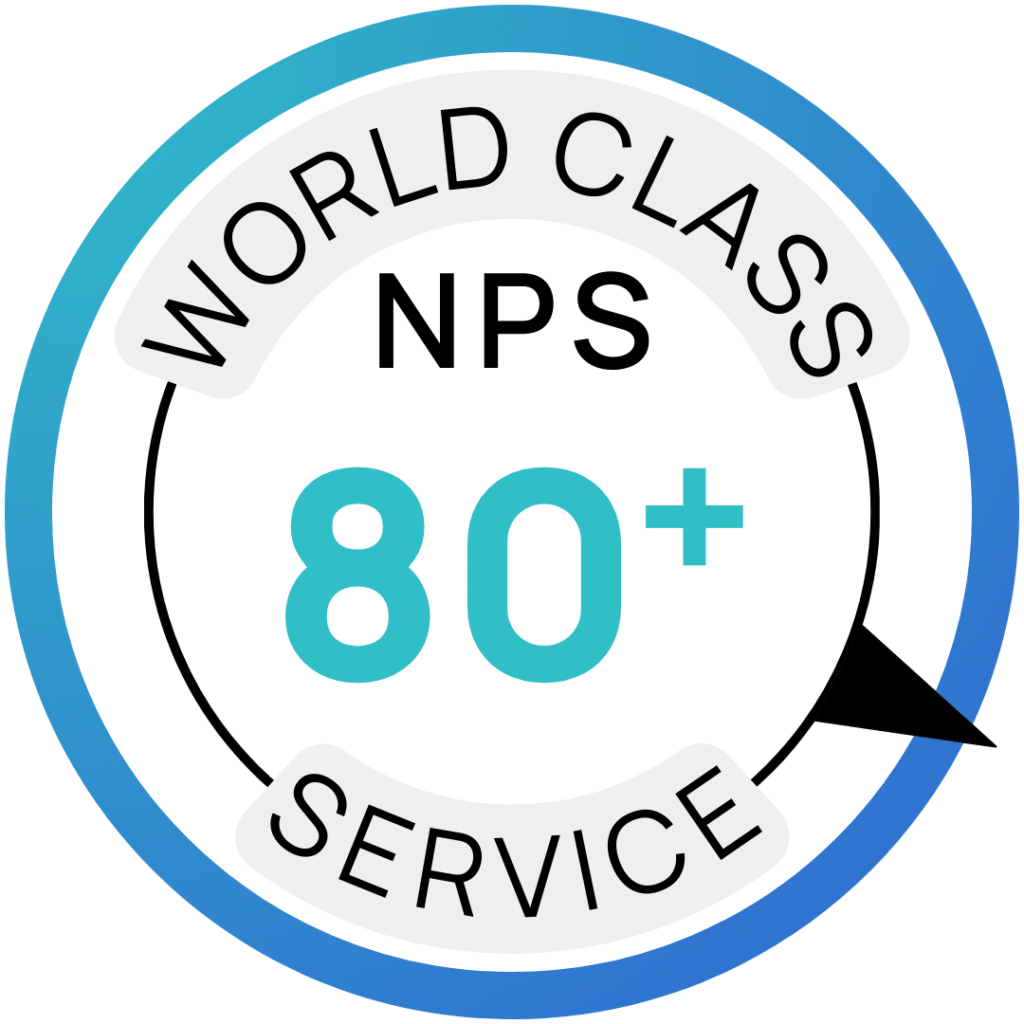The following is a transcript of our podcast conversation with Marriot Winquist and Seth Rosenbloom. You can listen to the full episode on Spotify and Apple Podcasts.
Sarah Wilkins
Hello and welcome to Humans Beyond Resources, an HR podcast by Reverb, where we cover topics from culture to compliance. Reverb believes that every decision a leader makes reverberates throughout the organization, from hiring your first employee to training your entire workforce. We believe in building healthy, inclusive culture settings. Engage your team. I’m your host, Sarah Wilkins. Welcome to episode five of Humans Beyond Resources. Today we are demystifying leadership coaching and how individuals and teams can use it to build skills and reach new levels of performance. Reverb is passionate about supporting professional and personal growth through individual, team, and spot coaching. We have found there are some common misconceptions and not a full understanding of how it can support you and your team. To help answer some questions and provide more context on coaching and why one would use it, I have Marriot Winquist and Seth Rosenbloom, both leadership coaches and senior facilitators. Welcome, Marriot and Seth. I can’t wait to hear from you.
Marriot Winquist
Hi, Sarah, thanks for having us.
Seth Rosenbloom
Good to be here. Thank you.
Sarah Wilkins
Thank you. So I’m just going to dive into some questions and we’ll go from there. We’ve found that sometimes people aren’t quite sure what coaching is, so I would love to just start there and hear. From you all on what exactly is coaching.
Marriot Winquist
I’ll go first. Yeah. Well, I see coaching almost as the most kind of tailored and specialized professional and self development. I think it’s centered around growth, and I see it as both an open and focus exploration towards action for the individual.
Seth Rosenbloom
Absolutely. Yeah, I think of it in the exact same terms. Coaching is closing the distance between where someone is at today and their potential. And it does that by enabling their learning, their development, their well being, their performance raises self awareness, really important. It increases the choices. People have helped them see more choice, more agency that they can act upon. And it’s really client centered. Coaches don’t have an agenda for the client. Our clients are capable of manifesting their potential. We’re up here and help them set what some of those new intentions are and see them in their totality, the whole person. That drives some change.
Marriot Winquist
Yeah, I love that, Seth, and kind of to build on that, I love what you mentioned about the ownership because it is absolutely the ownership is on the client themselves. And while we’re there as a partner to really help them with the exploration, I see really a few continuums as well, like an open exploration versus focused action, supportive versus challenging, and also kind of the mix of both reflective and active action moving forward. So I think it’s absolutely a mix of all those that can help enable our clients go from, like you say, where they are and where their potential could be.
Sarah Wilkins
That’s great. Thank you both. And I think one of the things you just said kind of led me into my next question is really what are some common misconceptions about coaching and the relationship, the role of the coach versus the coach?
Seth Rosenbloom
It’s not therapy. Marriot and I are not coaches to diagnose an underlying mental health issue or condition. Coaching also isn’t consulting. Like, we don’t provide domain expertise to our clients in the doing of their job. We’ve got clients in all these different industries, and I can’t help my clients write better software or send faster rockets into space or develop vaccines more quickly. We’re also not mentors. Coaching really is not kind of that wisdom dispenser in someone’s doing of the doing of their job. Coaching is a process, and we’re a peer in that process. And the modality is dialogue, inquiry based, building trust. I think we do work with our clients to get to the bottom of what they want and what really matters most to them. And so you need that openness, but we’re a peer in that process, not someone coming from some special perspective.
Sarah Wilkins
That’s a great point, Marriot.
Marriot Winquist
Yeah, and I would agree. Everything that Seth has mentioned, I think there’s a lot of external help, such as consulting, advising, mentoring, and external support that a leader still needs. But coaching, it’s almost it’s the help within that’s when you get that clarity of what is important, the clarity of where do I want to go and how I can show up, and also that clarity and, well, then what do I want to do with it? What do I want to do with this insight and information and how can I move that next step forward? And I think that is the that’s the common misconception. It’s not an external act. It really is something that a client has to put some work in for themselves in order to take that next step and create that growth for themselves. So, yeah, I would say the common misconception is that it’s some of the external factors or external support, which I think the client still needs in different facets of their role and their development. But coaching is very much an internal insightful process that could result in other actions.
Sarah Wilkins
Yeah, that’s great. I like that you both pointed out that it’s really about the individual and what they’re working on, and that the domain experience. I think we hear a lot, or I hear a lot, like, I have to have somebody that has worked in this industry or this role within a company so they can support me. But what I hear from you is that in the coaching role, that doesn’t matter as much as being, like, a good coach to help them take that approach that you take with them.
Marriot Winquist
Yeah, absolutely. I would say, and I hear that a lot as well. It’s like, oh, I want someone with this experience, or They’ve done this before. And I think where that comes from is probably the sense of comfort and the trust and credibility that the client actually feels that. Oh, because so and so has done this. I now have an implicit trust and comfort with discussing some of these dynamics and some of these situations. And I do say there’s absolutely a certain level of understanding that you can offer as a coach with different experiences. Right. If I’ve been in this particular experience, I get the dynamics. I understand maybe where the client is coming from, and so therefore, my line of questioning and inquiry would be more targeted in different ways. But I think in no means does a coach need to have that type of experience in order to create a very powerful coaching relationship with the client.
Seth Rosenbloom
Totally agree. The coach is not an emulator. Right. And so I actually find that sometimes when I coach clients that work in fields and industries I’m super familiar with, I have to be even more careful to not trip into the mode of help or advice. Right. Because if we as coaches become advice dispensers, coaching won’t be very sticky. It really is a client, a leader especially, I think, discovering the mindsets, discovering the behaviors, discovering the ways of communicating that they’re going to need to be effective in their situation. And being told what those are is not the same as building the muscles yourself.
Sarah Wilkins
Yeah, that’s totally true. And I was also wondering about a common misconception that I think I’ve heard is that for coaching to work or coaching to be successful, it needs to be a long engagement. Many times that you’re meeting with the coach or what do you all think about the idea of spot coaching and having, you know, 130 minutes or 1 hour conversation to help you work through something? I know personally, I’ve had, you know, two different, like 30 minutes coaching sessions, and it actually got me to move forward on something that I knew I needed to do but hadn’t yet. And it really improved my overall well being. So I’m curious what you all think about that.
Marriot Winquist
Yeah, I think the short answer is it depends. I absolutely see the value in both. I think if there are certain things or if the individual really comes with very specific areas that they want to move on and they’re already farther along kind of in that space and really need a very specific type. Of coaching to get them to that next step. Then it could very well work with one or two kind of short sessions that can unblock that and move forward. There are other situations where it’s not as clear cut client led conversation and dialogue. It very much is when the client is ready for that type of breakthrough and insight, that’s when it happens. So I think there’s that exploration side and there’s also the actual behavior change side. We as human beings don’t change very quickly. So if there’s something that even at the beginning that the client decides on. Yeah, this is most important for me and most impactful, and I want to make the change. And I absolutely see the value of both a longer term partnership and some spot coaching as well.
Sarah Wilkins
Yeah, I think the personalized approach right. So depending on what the individual is working on, both are there and both are useful, depending on where that person is.
Seth Rosenbloom
Totally agree. It’s based on how sweet is the juice, how hard is the squeeze, right? If I’m a brand new executive leading a division of 100 people coming in from a sole contributor role, wow, there’s a lot there’s a lot of goals to set. We’re probably going to want to get some feedback. We’re going to want to talk to some people. We are going to want to kind of set a plan and then work through some goals and establishing some new behaviors in multiple sessions. If I’ve got an upcoming meeting with my team next week and I haven’t brought them together since COVID maybe, or it’s been spotty since COVID and I’m really thinking about how to reconvene them and how to build connection. Half hour conversation could be plenty. It really depends on what the goal is.
Marriot Winquist
Yeah.
Sarah Wilkins
Thank you. Thank you both. I’m going to move on. You kind of mentioned this already, but I would love to kind of get more of your perspective on how coaching can help a leader in an organization, how coaching can help them. What are some examples that you’d have from your experience?
Seth Rosenbloom
There’s a full breadth of scenarios. I think, for leaders, common stuff that comes up in coaching is people are working on setting a vision, being a storyteller. People are working on inspiring and motivating people to perform at their best. Their teams, people that work for them, they’re transitioning into a new set of responsibilities, into a new organization or their organization change a lot. And so all of a sudden, the kind of system around them has changed. They’ve got to perform in. I think for everybody, it’s about getting back to being centered to your purpose. What gives you joy, what gives you flow in your work, finding voice, speaking truth to power, managing up, managing out thinking and acting more long range. Not just kind of like letting the work dictate your next hour and chasing it, but being able to work in a more playful way. Where do you focus? Where do you prioritize your time? navigating conflict, building relationships and achieving things to them, creating teams, fostering culture, holding yourself accountable to what you want. I think all of those things kind of come up. They can come up as goals in themselves, or they can be underlying intentions that sometimes surface through getting feedback and developing goals there. You probably see that and much, much more.
Marriot Winquist
Yeah, I 100% agree, Seth, and I think that the only two that I would also build on and add to this is confidence. I think so often we see even very highly accomplished leaders, especially in the situations that you’re talking about, when they are transitioning to a new role. Maybe it’s a new industry, maybe it’s whatever that next thing is. It’s that next level and next step. And suddenly all the confidence that they had before, it’s now in question. It’s now in question as they look at the new space. And so there is a lot of rediscovering strengths, rediscovering their own voice and finding what’s authentic still for them and set to your point, it’s recentering on that purpose, like why I’m here for a reason. I know I’ve done fantastic work. I now am looking at the future with confidence versus kind of with what am I going to do. So confidence, definitely seeing it. And communication as well. All the parts that you talked about, building a culture, building strong relationships, so much is built on communication and how you can build trust within your team and your organization. And that absolutely is a running theme, like building trust, communicating in a very both candid, but also open and trusted way. It’s so important for successful organizations. So I think leaders absolutely look for ways to do that and show up in their best in those ways. And I would say can I say it to your question as well? In what ways can leaders also benefit from this? I think a lot of leaders actually just need a safe and nonjudgmental space to actually have these types of discussions. I think when you are in especially at a higher level leadership position, there are many high stakes in every single engagement and interaction that they have around them. So a lot of times they need a way to both voice their own thoughts. Sometimes a lot of times that I’m sure you hear that too, it’s like, oh, just even hearing myself say this to you, I’m now realizing x, Y and Z, right? So even voicing it out in their own thoughts and then exploring different options and then also evaluating and focusing on how to do what to do in the next step. I mean, those are so important for leaders to have that time and space to do it. And many busy leaders just they just don’t have that. So I think really important is for leaders to have that time and space to do that.
Sarah Wilkins
Yeah, that’s great. And you kind of led me into what I was going to ask next is when would I see coaching versus some type of leadership development workshop or something like that? In this example you gave like a leader just having that individual time and space to work through those. Is that really kind of because I know there’s team coaching versus workshops and individual coaching. But yeah. Any thoughts on that?
Seth Rosenbloom
Coaching is designed to be super individualized. And so coaching is great when you take a really fun, hard leadership challenge and really want to put it into action where you, the leader, are going to get to choose among a set of behaviors and triumph. And you can say, hey, I want to apply a principle that I got in a leadership workshop or grab from a book.
Marriot Winquist
Yeah, I absolutely agree 100% to what Seth says. I think we absorb and take a lot of inspiration from many different things, whether it’s books and podcasts and even leadership training. But the rubber meets the road when you have to do it yourself and in your own way and to make the impact that you want. And I feel that is where the coaching partnership comes into play. That’s when you have a really focused and dedicated partner that can come along with you through that navigation and really uncover what is working, what doesn’t work. Now, where do you want to go, how do you want to navigate this? I love that how you mentioned it. Like the fun and hard problems and challenges that a leader would want to.
Sarah Wilkins
This kind of brings us to the end. And so I love at the end just to hear what one thing would you want someone to take away today? Whether it’s about coaching or something they can try themselves.
Seth Rosenbloom
I think when I meet with prospective clients, I am always curious about what they want to change. And what they want to change might not be because there’s anything bad today or in the current, but new demands on them or new things that they want to do. They’re curious. And so I think that kind of starting from that place of curiosity is like, really important. Coaching isn’t really about fixing so much. Right. It really is future focused. And so coaching is a really good fit. If there’s some stuff you want to try because you want new, better, easier, faster, you want to make something that’s not happened today, that’s a good spot.
Marriot Winquist
That’s funny. The word that I was landing on was curiosity as well. And I would say it’s curiosity both when you’re in a coaching space to be curious so that you can go where you actually would love to go, but also if you’re not there yet, if you’re actually just curious about, how is this going to help me? Yeah. Stay in that curiosity and find out. I think coaching is even from my own personal experience, it’s been very surprising to both myself and also as a coachee and also for my clients who are coaching. A lot of times people surprise themselves when they come into coaching and really get results that they didn’t really think, first of all, didn’t really think sometimes they need or didn’t really think that it would be possible. And those are the ones that are amazing to see.
Sarah Wilkins
Yeah. Well, thank you both so much. This was a really great conversation and I just love hearing from both of you. Any chance I get. Thank you.
Marriot Winquist
Thanks so much. Sarah. Thanks.
Sarah Wilkins
Thank you for listening to this episode of Humans Beyond Resources. Visit reverbpeople.com to find free resources, subscribe to our newsletter and connect with our team. If you haven’t already, subscribe to stay up to date on all of our upcoming episodes. We look forward to having you as part of our community.











